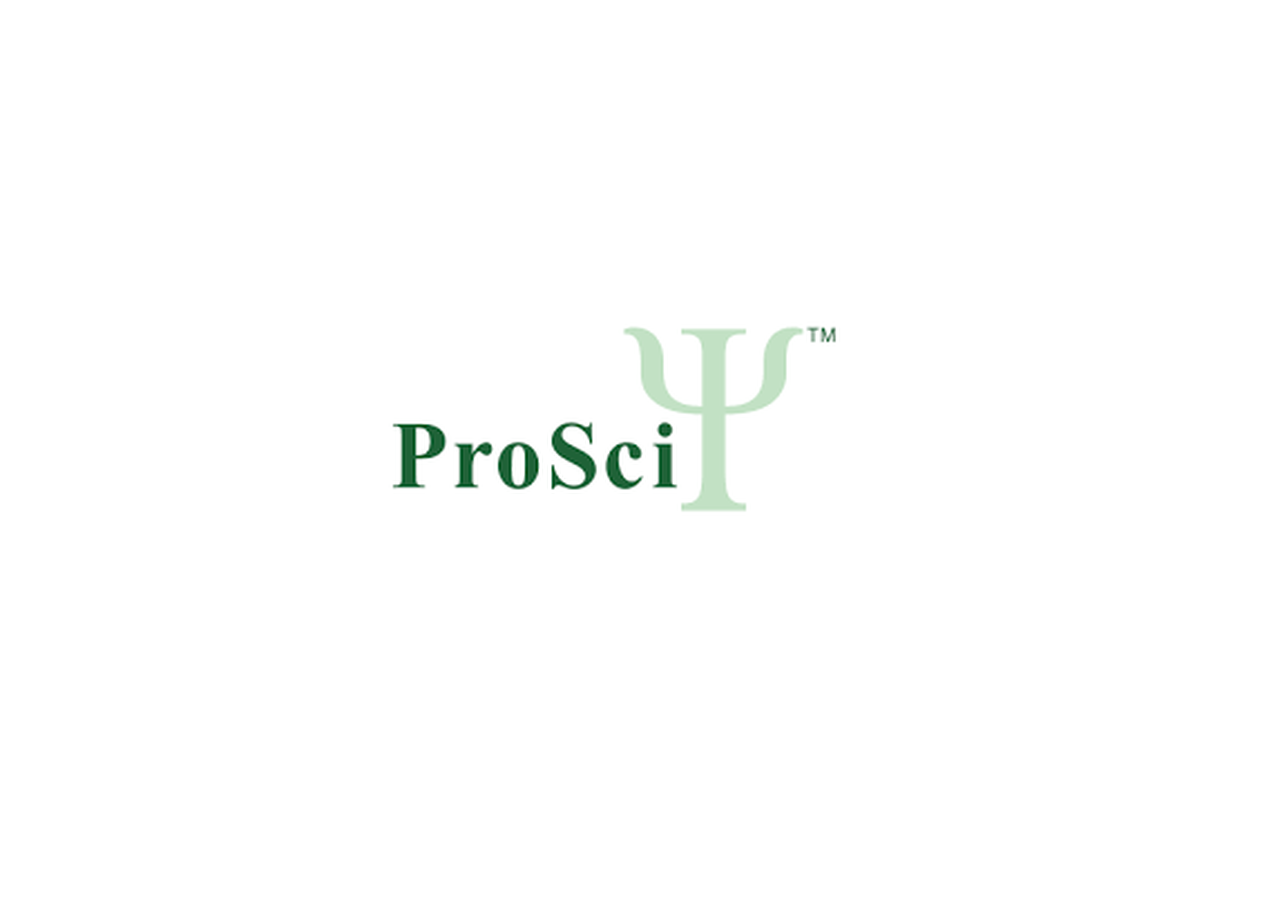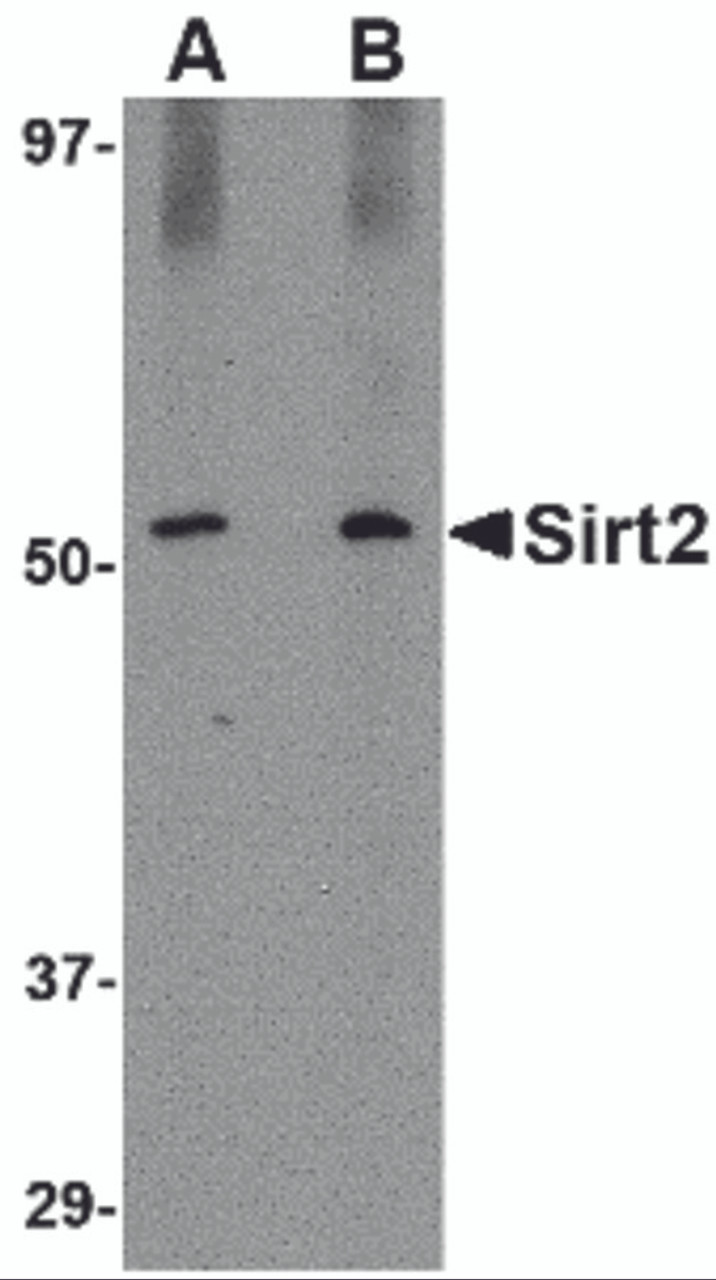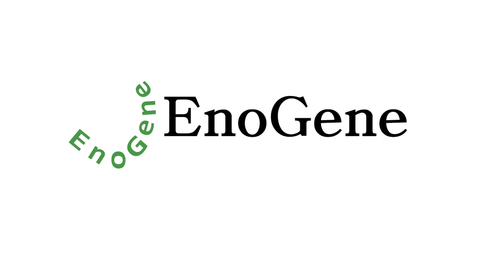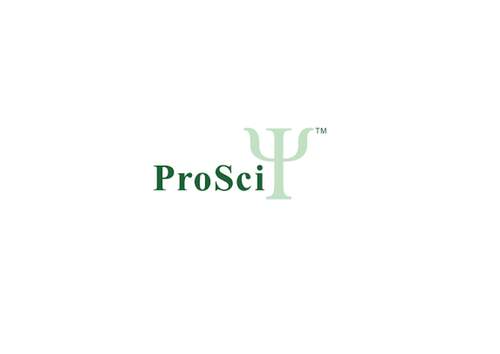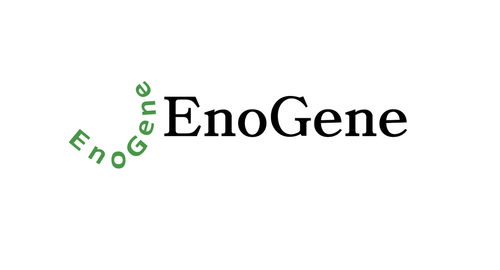Product Description
SIRT2 Antibody | 4485 | ProSci
Host: Rabbit
Reactivity: Human, Mouse, Rat
Homology: Predicted species reactivity based on immunogen sequence: Rabbit: (100%)
Immunogen: SIRT2 antibody was raised against a 19 amino acid synthetic peptide near the carboxy terminus of the human SIRT2.
The immunogen is located within the last 50 amino acids of SIRT2.
Research Area: Homeostasis
Tested Application: E, WB, IHC-P, IF
Application: SIRT2 antibody can be used for detection of SIRT2 by Western blot at 1 - 2 μg/mL. Antibody can also be used for immunohistochemistry starting at 2.5 μg/mL. For immunofluorescence start at 5 μg/mL.
Antibody validated: Western Blot in mouse samples; Immunohistochemistry in human samples and Immunofluorescence in human samples. All other applications and species not yet tested.
Specificiy: N/A
Positive Control 1: Cat. No. 1403 - Mouse Brain Tissue Lysate
Positive Control 2: Cat. No. 10-301 - Human Brain Tissue Slide
Positive Control 3: N/A
Positive Control 4: N/A
Positive Control 5: N/A
Positive Control 6: N/A
Molecular Weight: Predicted: 43 kDa
Observed: 52 kDa
Validation: N/A
Isoform: N/A
Purification: SIRT2 Antibody is affinity chromatography purified via peptide column.
Clonality: Polyclonal
Clone: N/A
Isotype: IgG
Conjugate: Unconjugated
Physical State: Liquid
Buffer: SIRT2 Antibody is supplied in PBS containing 0.02% sodium azide.
Concentration: 1 mg/mL
Storage Condition: SIRT2 antibody can be stored at 4˚C for three months and -20˚C, stable for up to one year. As with all antibodies care should be taken to avoid repeated freeze thaw cycles. Antibodies should not be exposed to prolonged high temperatures.
Alternate Name: SIRT2 Antibody: SIR2, SIR2L, SIR2L2, NAD-dependent protein deacetylase sirtuin-2, Regulatory protein SIR2 homolog 2
User Note: Optimal dilutions for each application to be determined by the researcher.
BACKGROUND: SIRT2 Antibody: The founding member of the sirtuin protein family was the silent information regulator 2 protein (Sir2p) of Saccharomyces cervisiae, an NAD+-dependent histone deacetylase (HDAC) that regulates chromatin silencing. The SIR2 family of genes are highly conserved from prokaryotes to eukaryotes. Mammals have seven homologs of Sir2p, SIRT1-7, which are involved in diverse processes ranging from transcriptional regulation, cell cycle progression and DNA-damage repair to aging. SIRT2 is a predominantly cytoplasmic protein that colocalizes with microtubules and can deacetylate alpha-tubulin and regulate progression through the cell cycle. Most Sirtuins are highly expressed in brain and testis, while Sirt2 expression is higher in fetal relative to adult brain. Recent studies on SIRT2 support the therapeutic utility of inhibitors for the treatment of neurodegenerative diseases such as Parkinson's disease.
 Euro
Euro
 USD
USD
 British Pound
British Pound
 NULL
NULL

